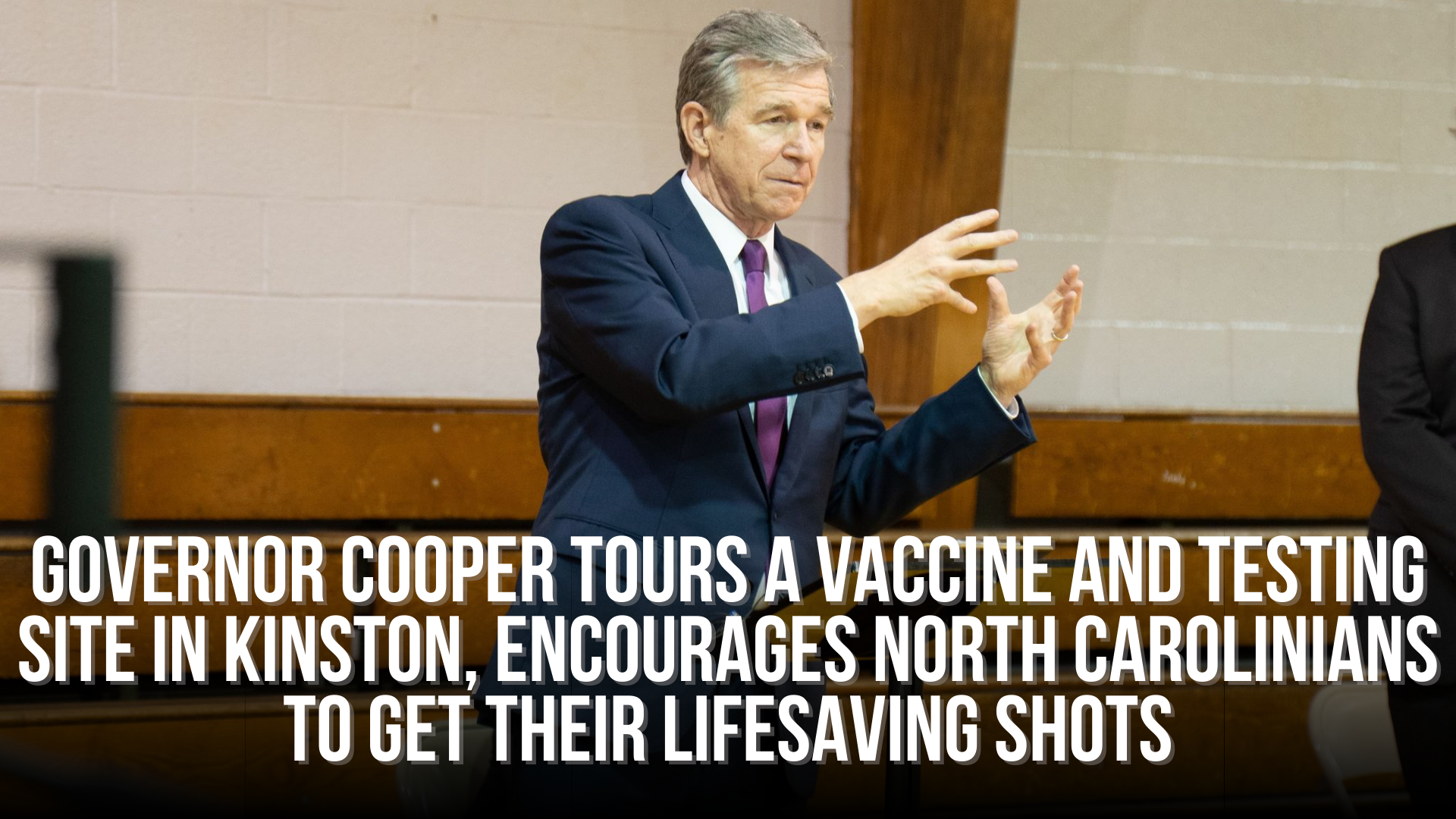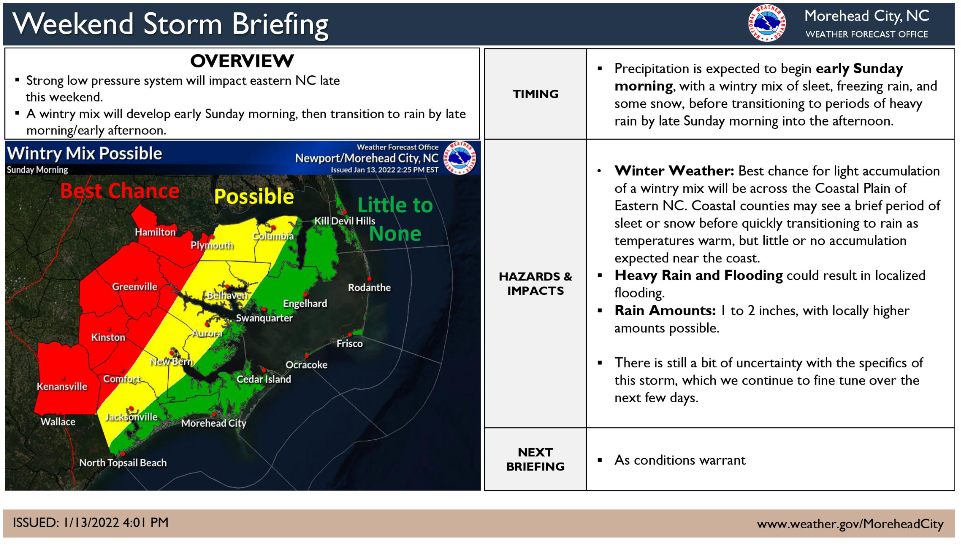Governor Cooper tours a vaccine and testing site in Kinston, encourages North Carolinians to get their lifesaving shots
RALEIGH: Today, Governor Roy Cooper and North Carolina Department of Health and Human Services (NCDHHS) Secretary Kody Kinsley visited and toured a COVID-19 vaccine and testing site hosted by Kinston Teens, a youth-led nonprofit organization, and the City of Kinston.
“Even with everyone’s weariness in dealing with this pandemic for almost two years, we must get boosted and vaccinated to keep us from getting severely ill if we get infected,” said Governor Cooper. “The vast majority of people who are dying and who are in our hospitals and ICUs with Covid are unvaccinated and we owe it to our health care workers to help ease their heavy burden.
“Getting vaccinated, getting a booster as soon as you are eligible, and wearing a mask are the three best things you can do to protect yourself and your loved ones during this surge of COVID-19 cases,” said NCDHHS Secretary Kody H. Kinsley. “Throughout the pandemic our state's African American community has been disproportionately impacted, which makes events like this more important to ensure that everyone has access to these safe and effective vaccines and boosters.”
Kinston Teens is a youth-led nonprofit organization seeking to empower young people through service, leadership and civic engagement. In recent months, the organization has distributed PPE to community members and held several COVID-19 vaccine clinics and testing sites.
“As the demand increases for vaccinations, testing, and effective masks like KN95 and N95 masks, Kinston Teens is working hard to get those resources where they are needed most—such as here at Holloway Community Center,” said Chris J. Suggs, Kinston City Councilmember and Chief Executive Officer of Kinston Teens. “We are grateful for that Governor Cooper and Secretary Kinsley visited one of our vaccination sites in Kinston to see firsthand the work of our volunteers and the impact of state resources like Healthier Together and the personal protective equipment (PPE) request program from North Carolina Department of Health & Human Services and North Carolina Department of Public Safety. It is proven that vaccines and booster shots help prevent serious illness, death, and further mutations of the virus, and we want our community to be protected.”
This week, North Carolina broke a record for number of patients hospitalized with COVID-19 with 4,098. Daily admissions for COVID-19 also broke a record at 639. NCDHHS Secretary Kinsley sent a letter to hospital leaders thanking them for their hard work and highlighting emergency measures, flexibilities and tools that the Department has put in place to help manage capacity. Those tools give broader latitude for staffing, waive state regulations at health care facilities and coordinate patient transfer for overcrowded hospitals.
On Tuesday, NCDHHS announced contracts with two more testing vendors to increase local testing options and expand the footprint of the existing 12 vendors to cover hundreds of no-cost testing sites across the state. More than a million professional rapid antigen tests, at-home rapid antigen tests and at-home collection kits are beginning to arrive in the state. Hundreds of community-based events, testing locations and home kit options are listed at ncdhhs.gov/GetTested.
Vaccines and boosters continue to provide the strongest protection against COVID-19 serious illness, hospitalizations and death. Unvaccinated individuals make up 80% of hospitalizations and 88% of COVID-19-related ICU admissions.
To date, North Carolina has administered more than 15 million doses of the vaccine. Seventy-four percent of adults have received at least one shot, including 95 percent of North Carolinians ages 65 and older. Seventy percent of adults have been fully vaccinated.
Safe and effective COVID-19 vaccines are authorized for everyone 5 and older, and boosters are available for everyone 12 and older. Go to myspot.nc.gov to find a vaccine location near you.
NCDHHS also encourages the use of well-fitting, multi-layer masks as another layer of protection against the spread of the virus. If possible, wear a surgical or procedure mask, a KN95 or an N95. NCDHHS is making some higher-grade masks available for adults at no cost in more places that need them. For more information, visit https://covid19.ncdhhs.gov/RequestMasks.




